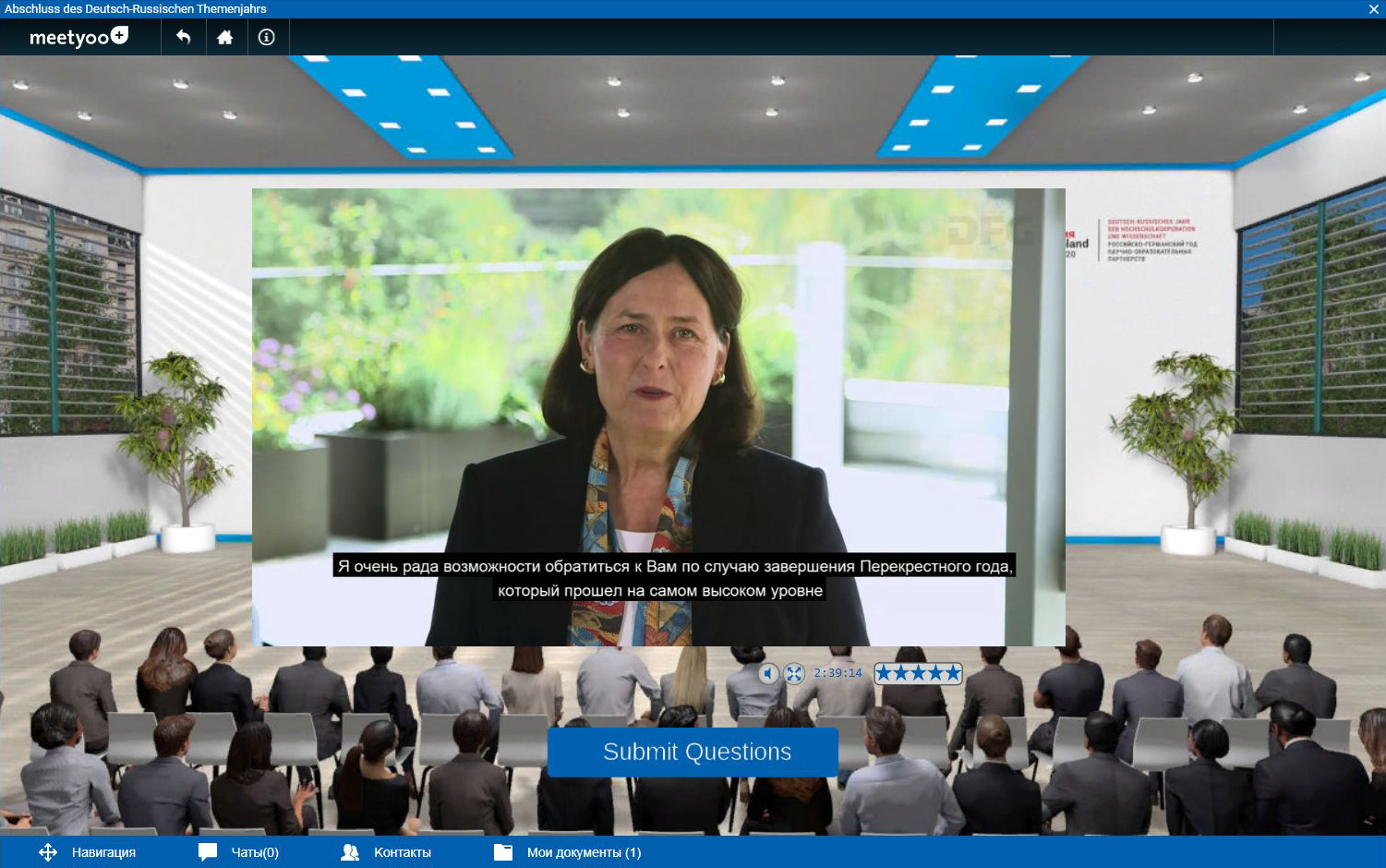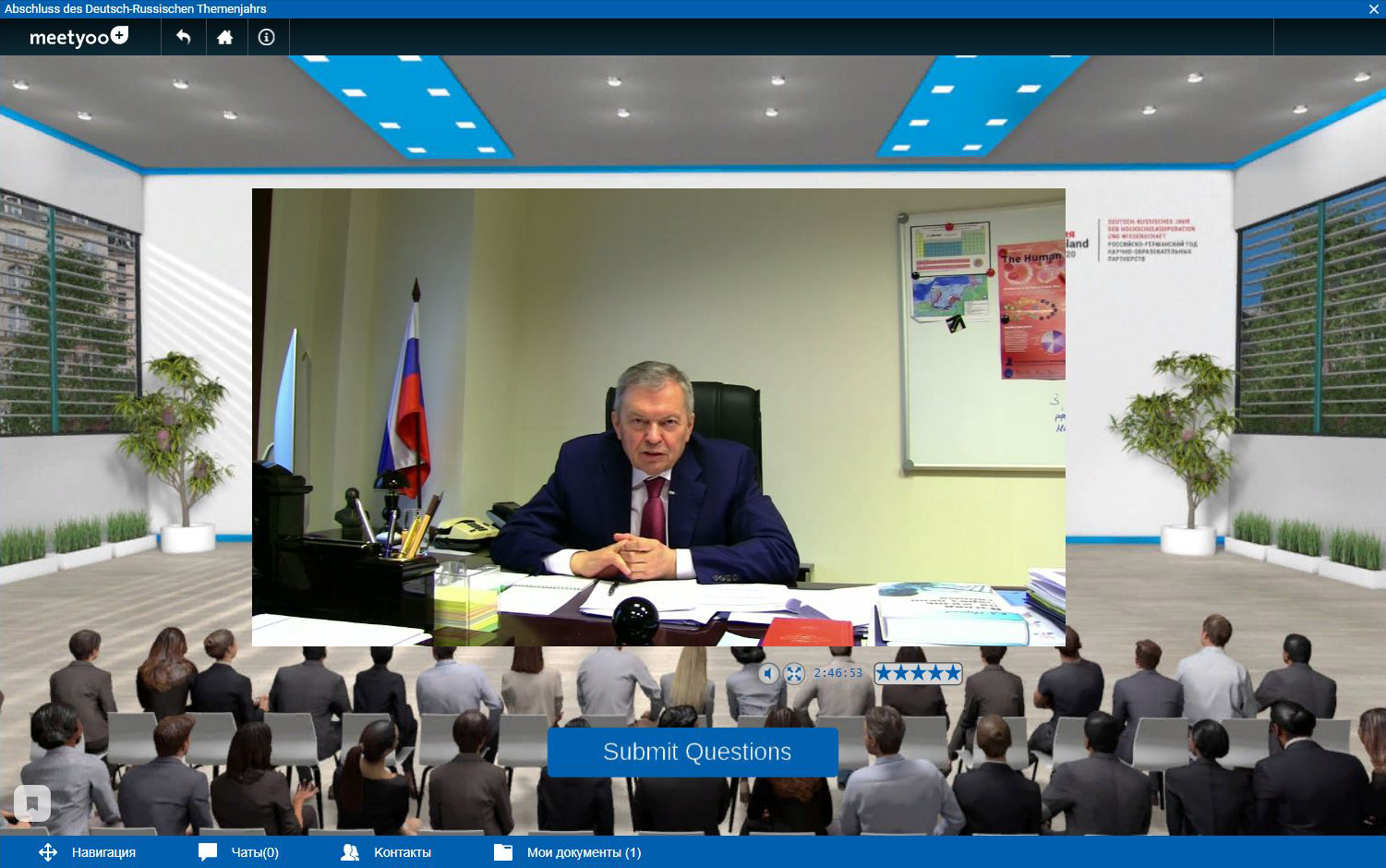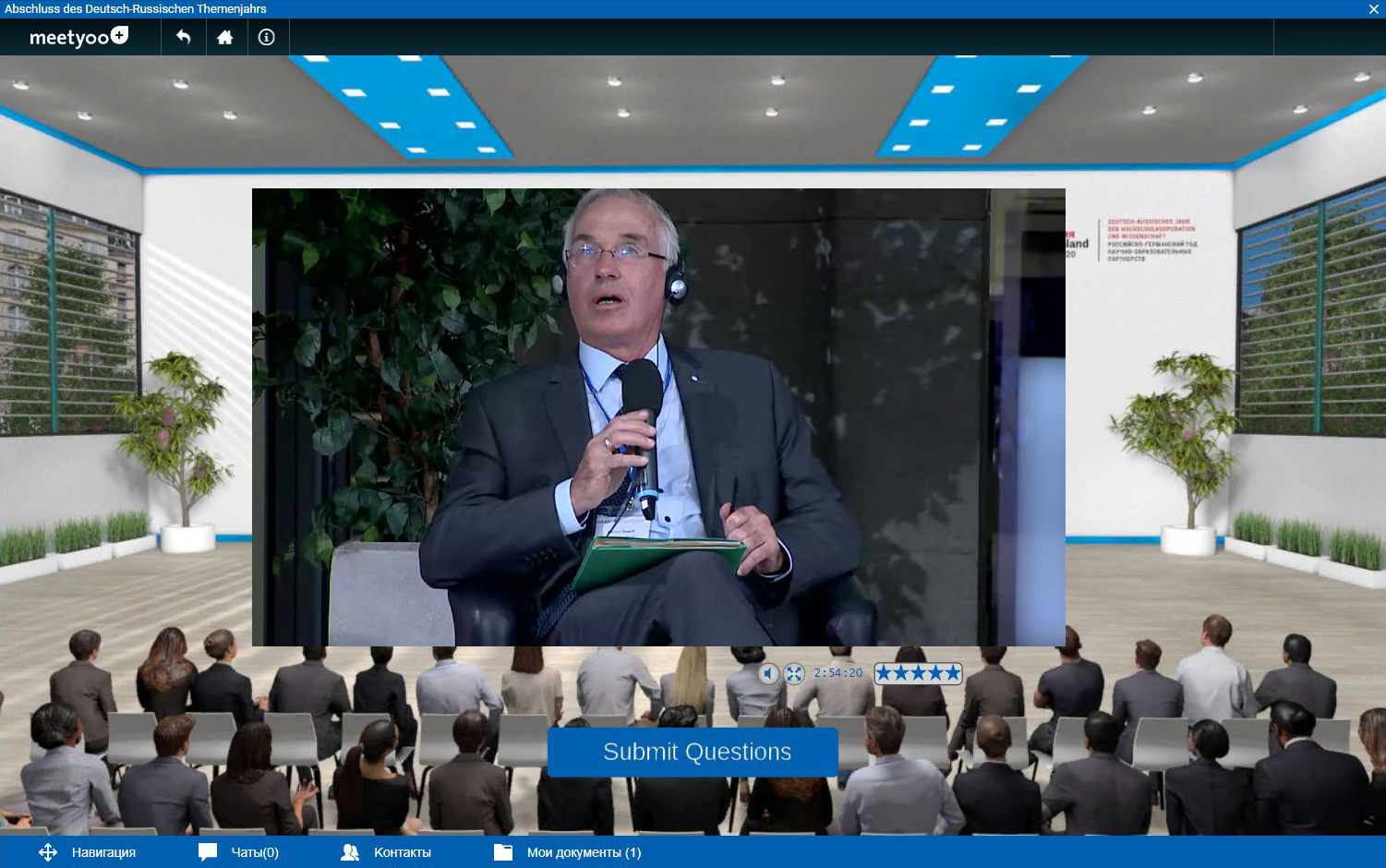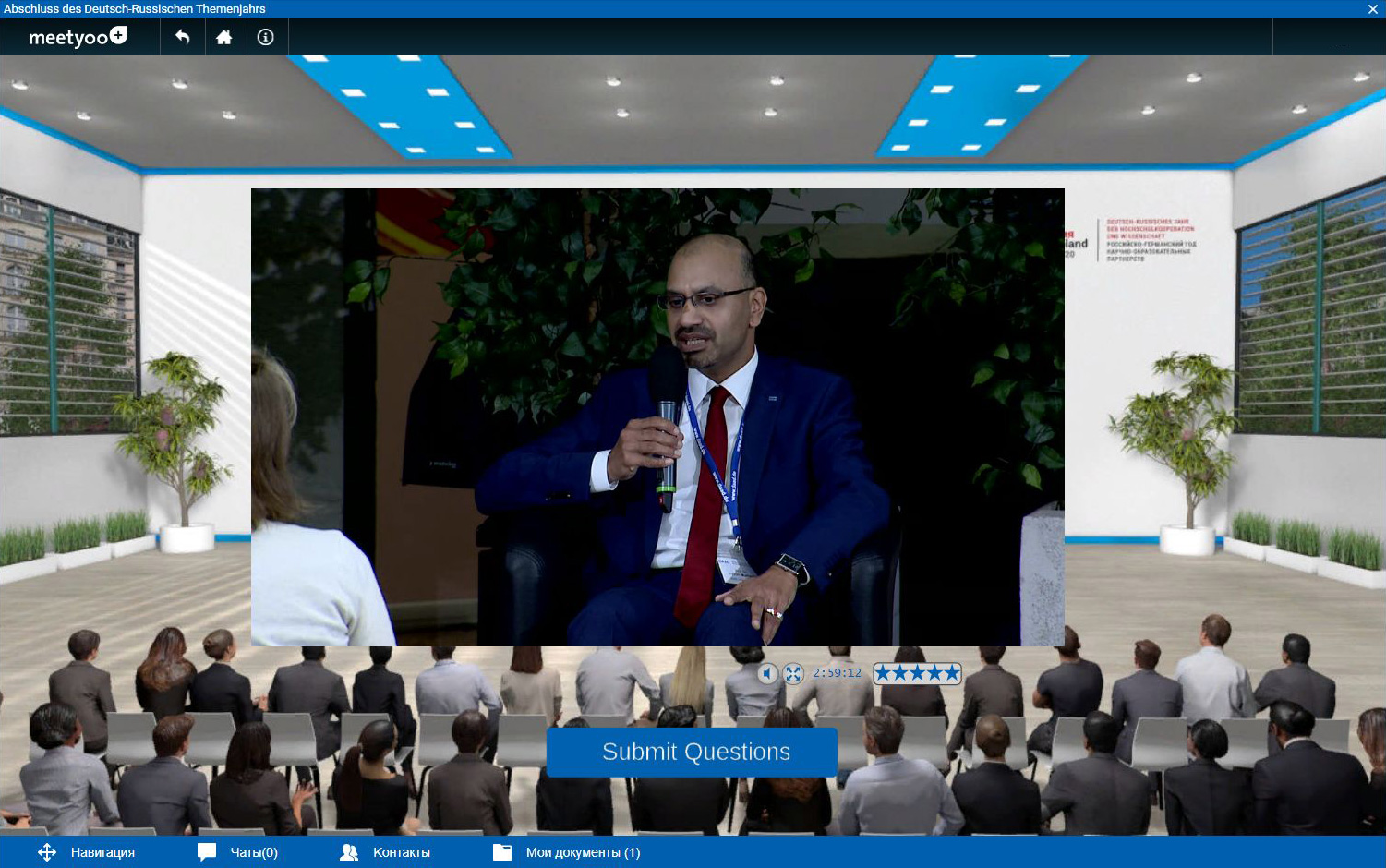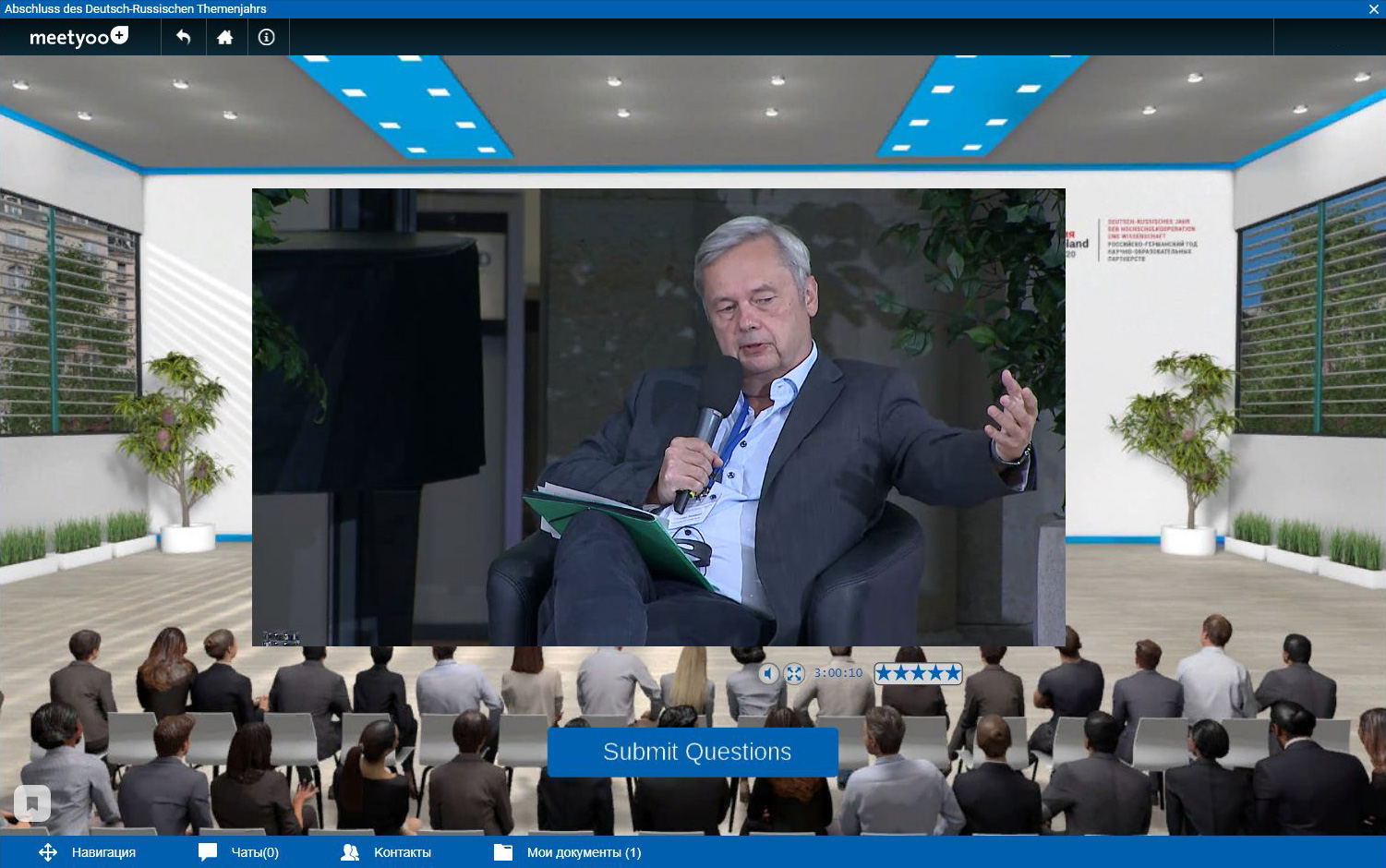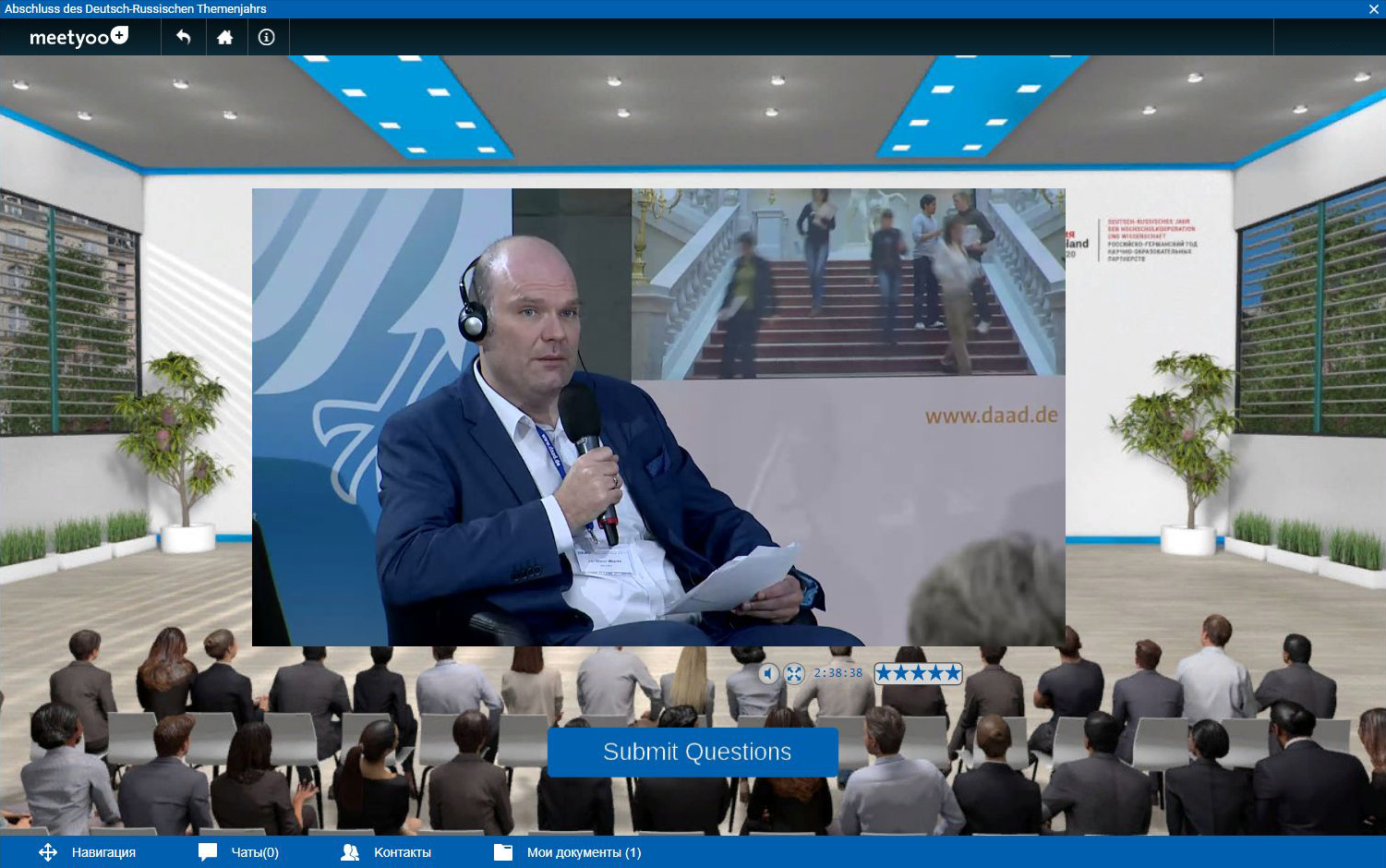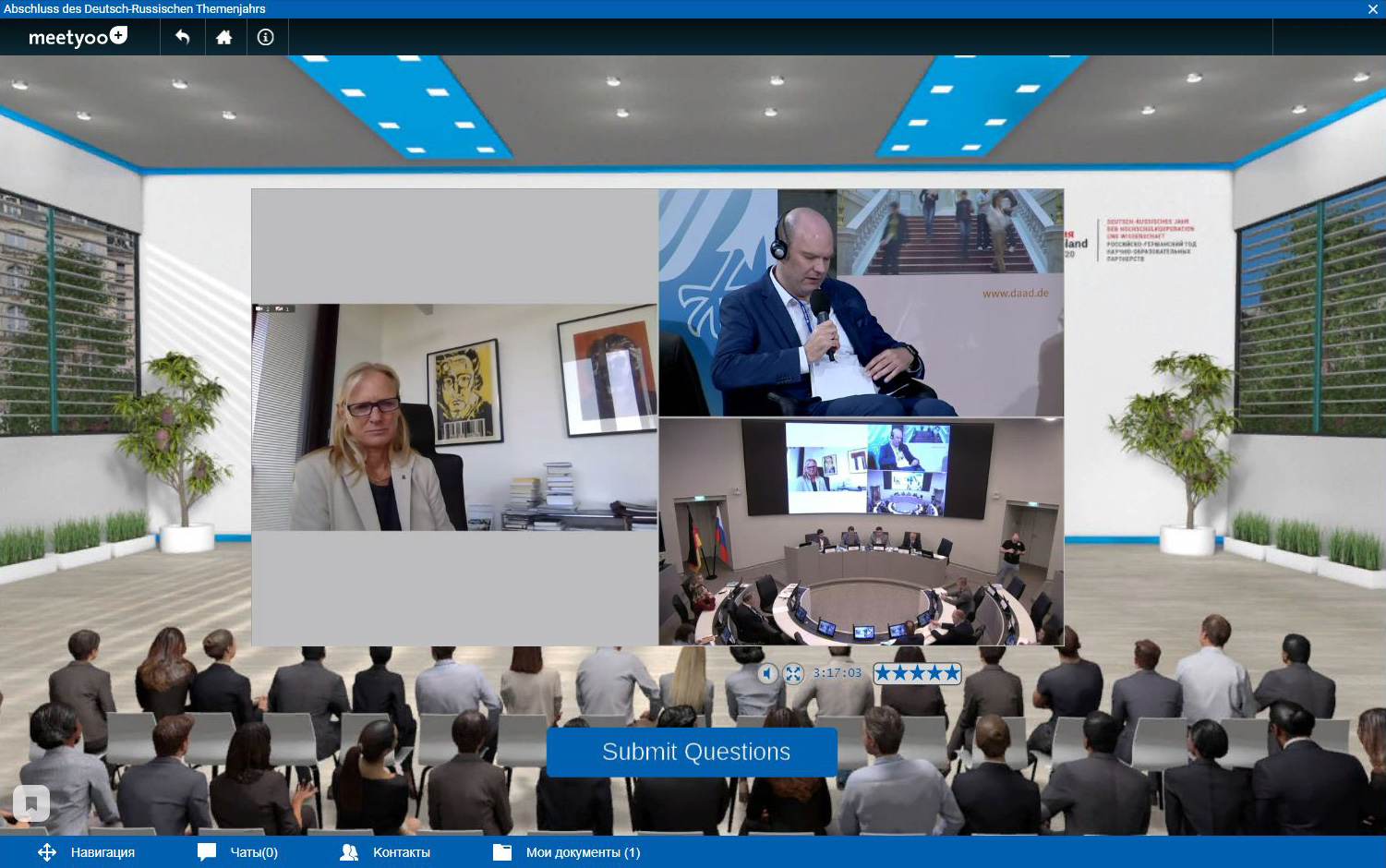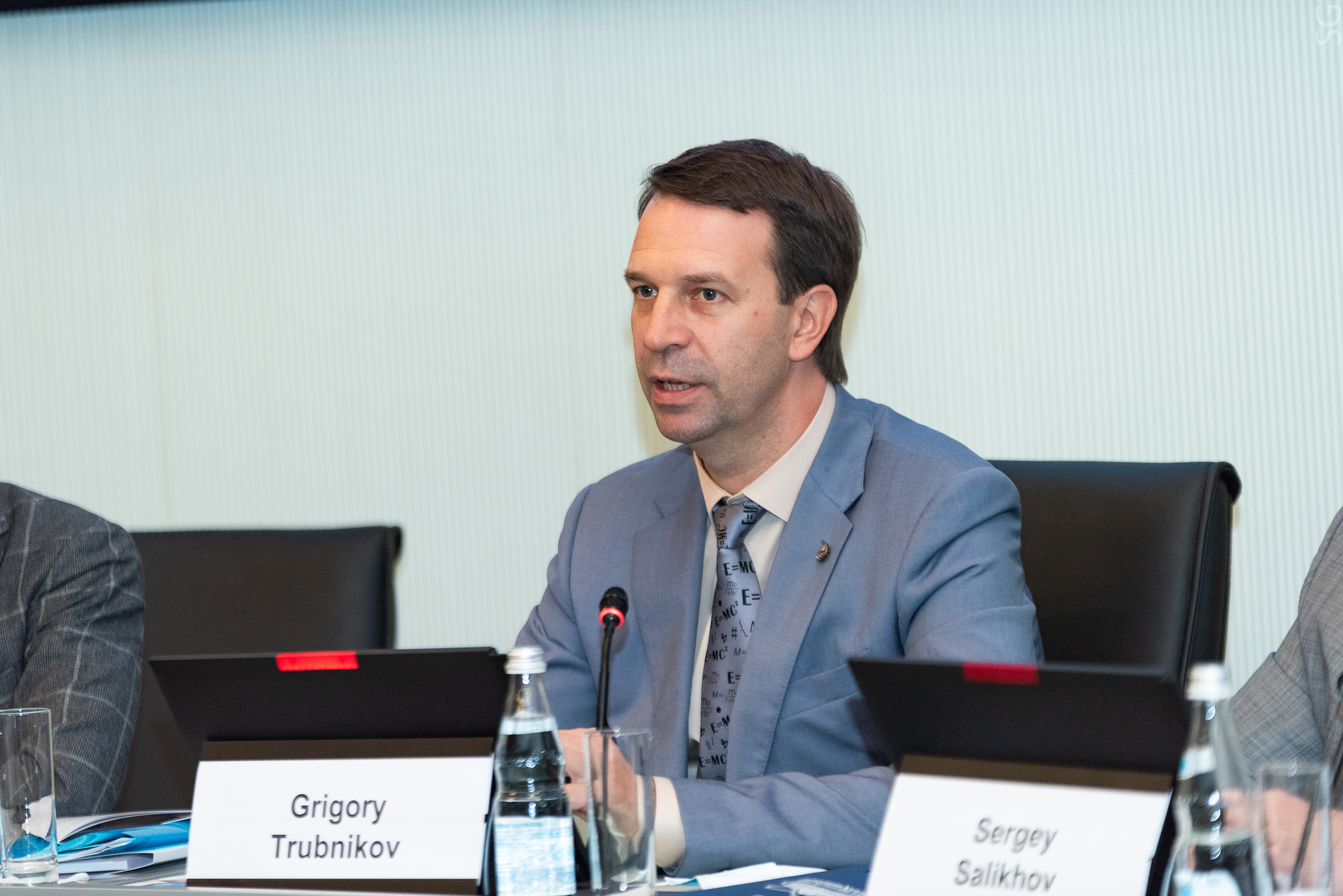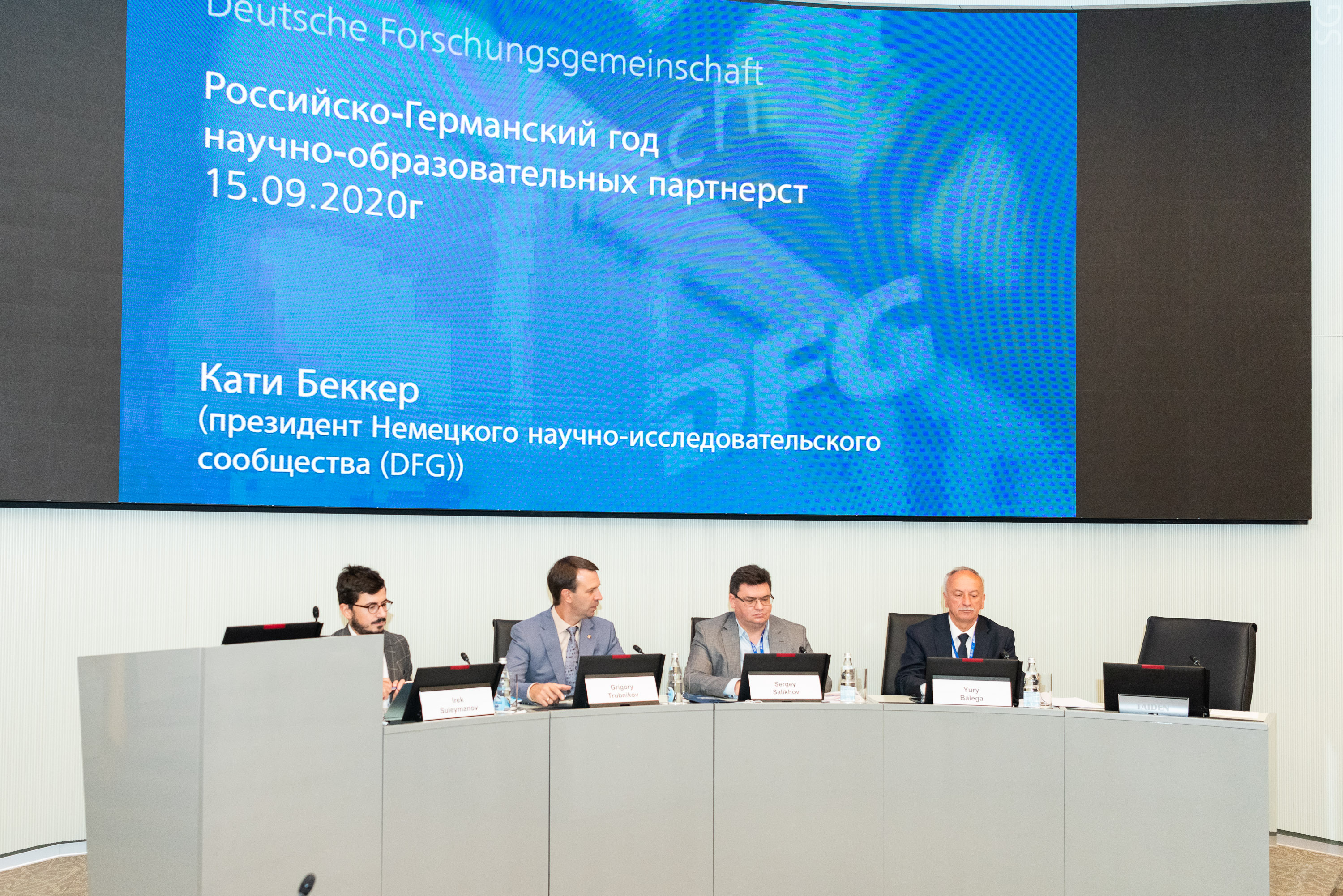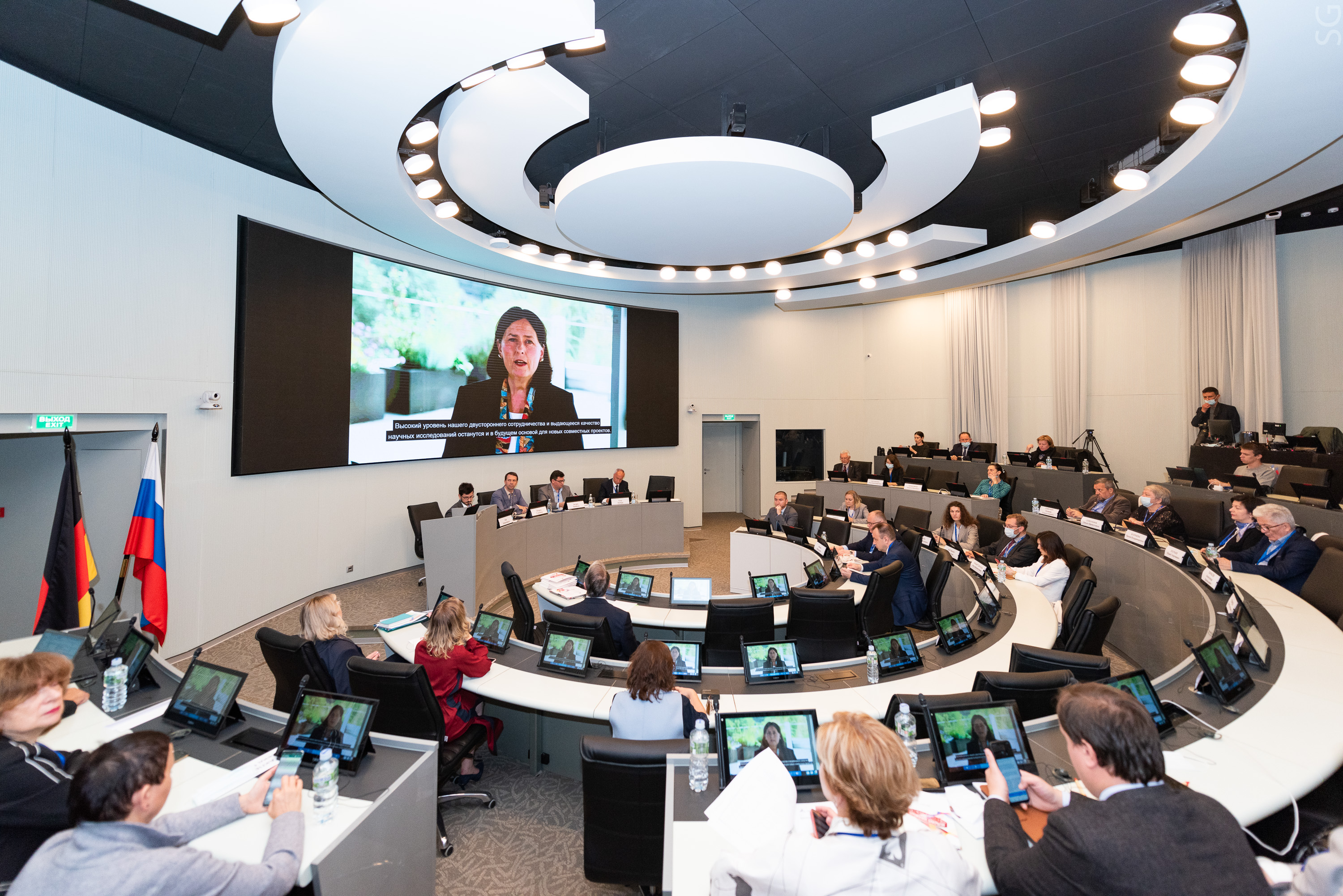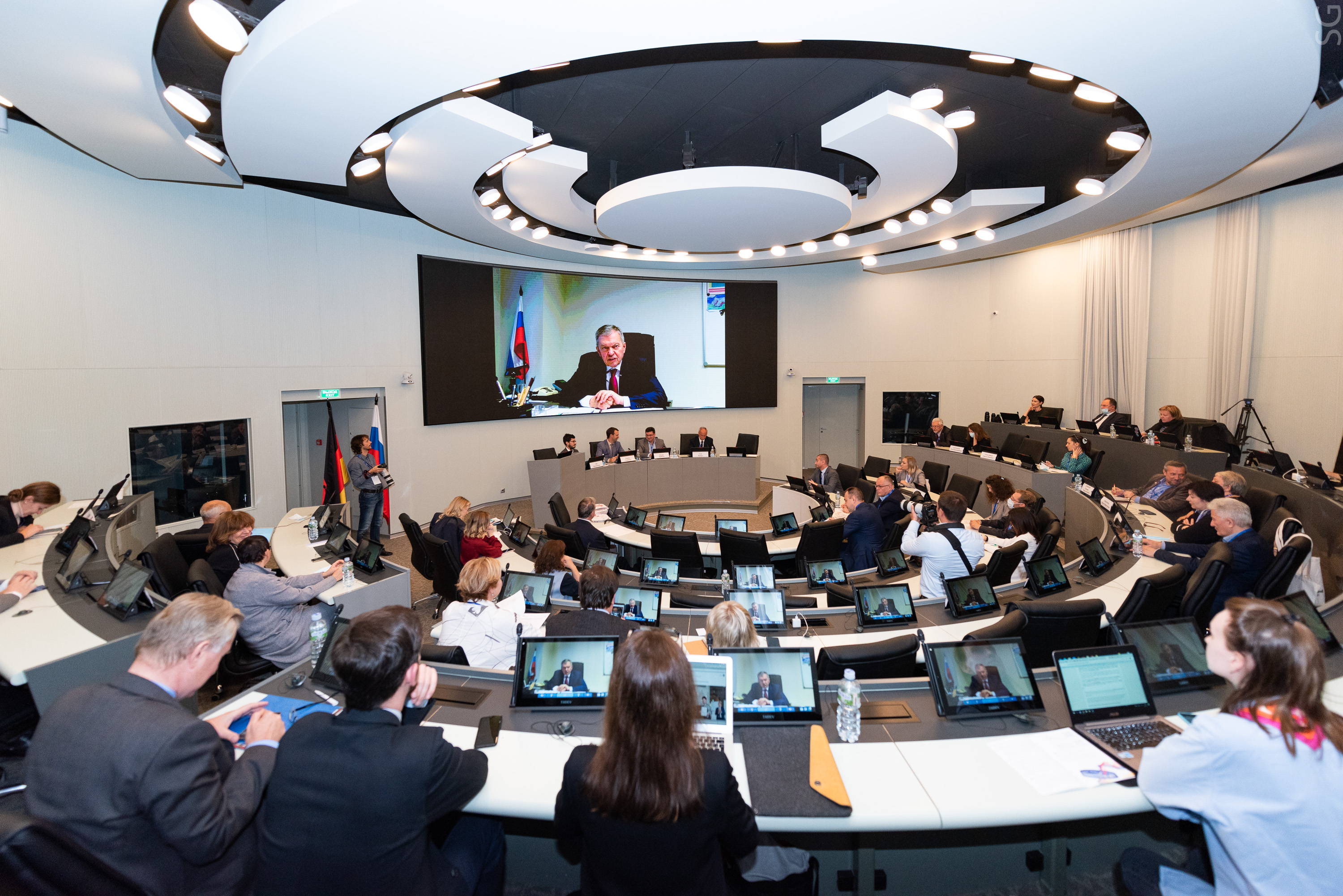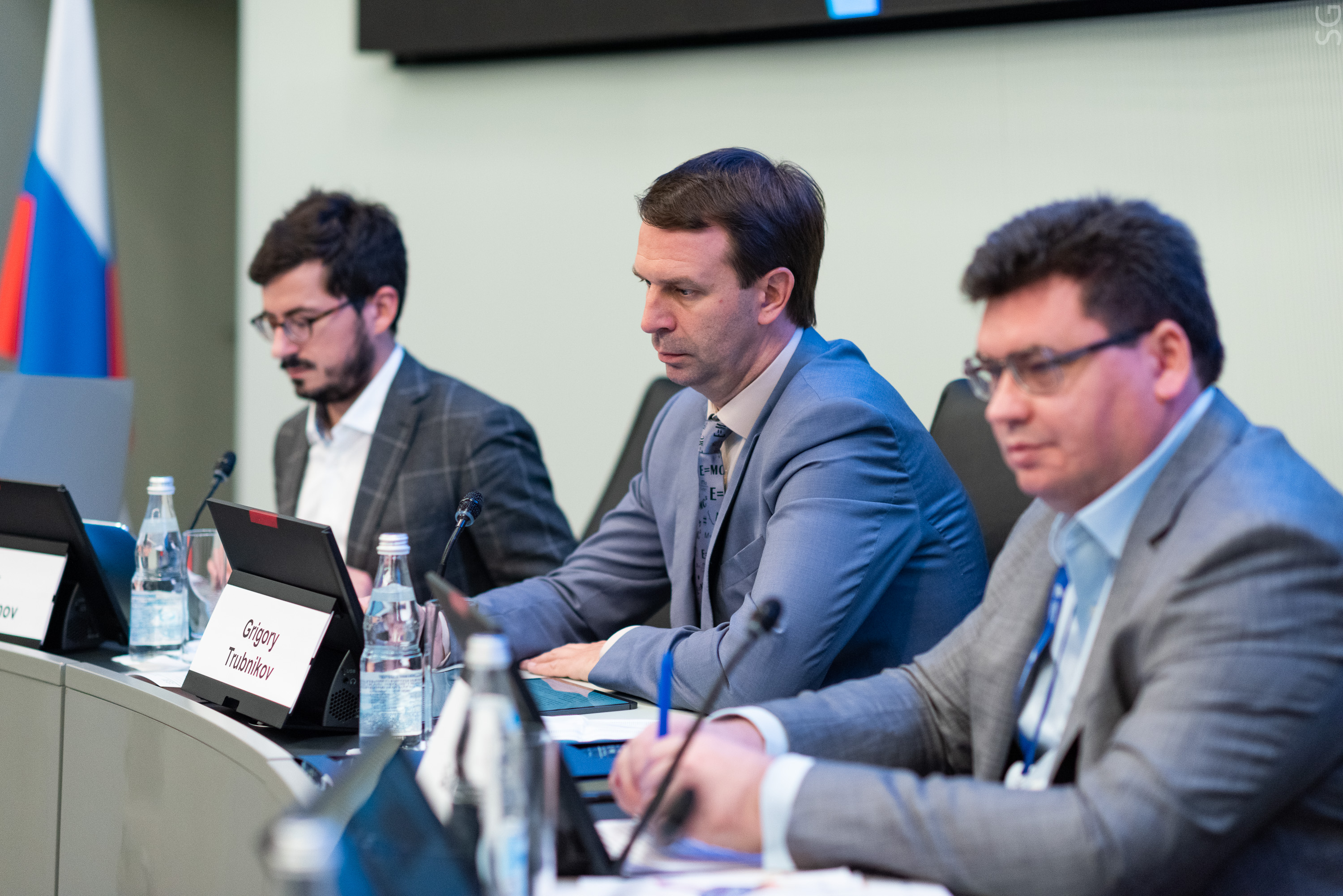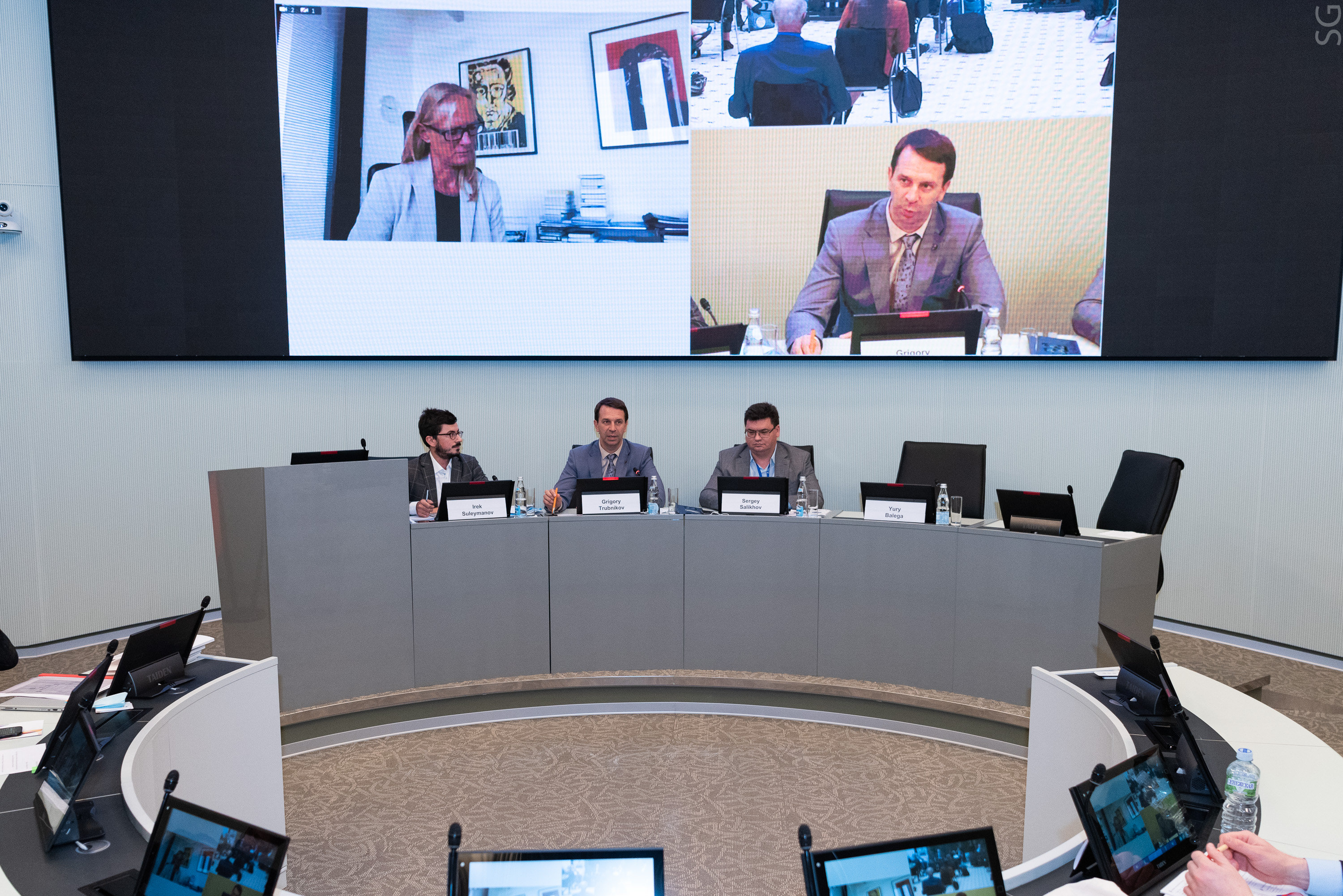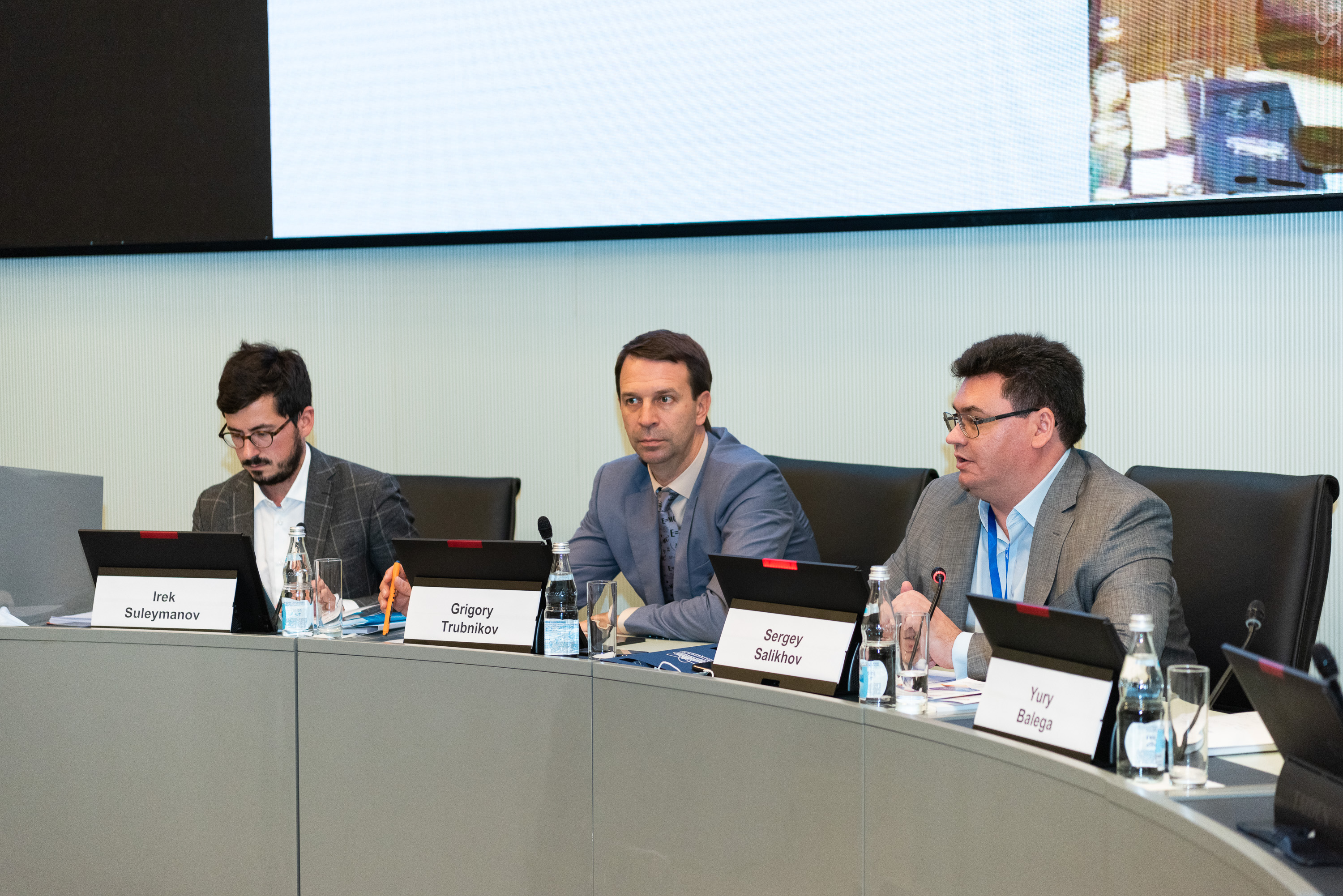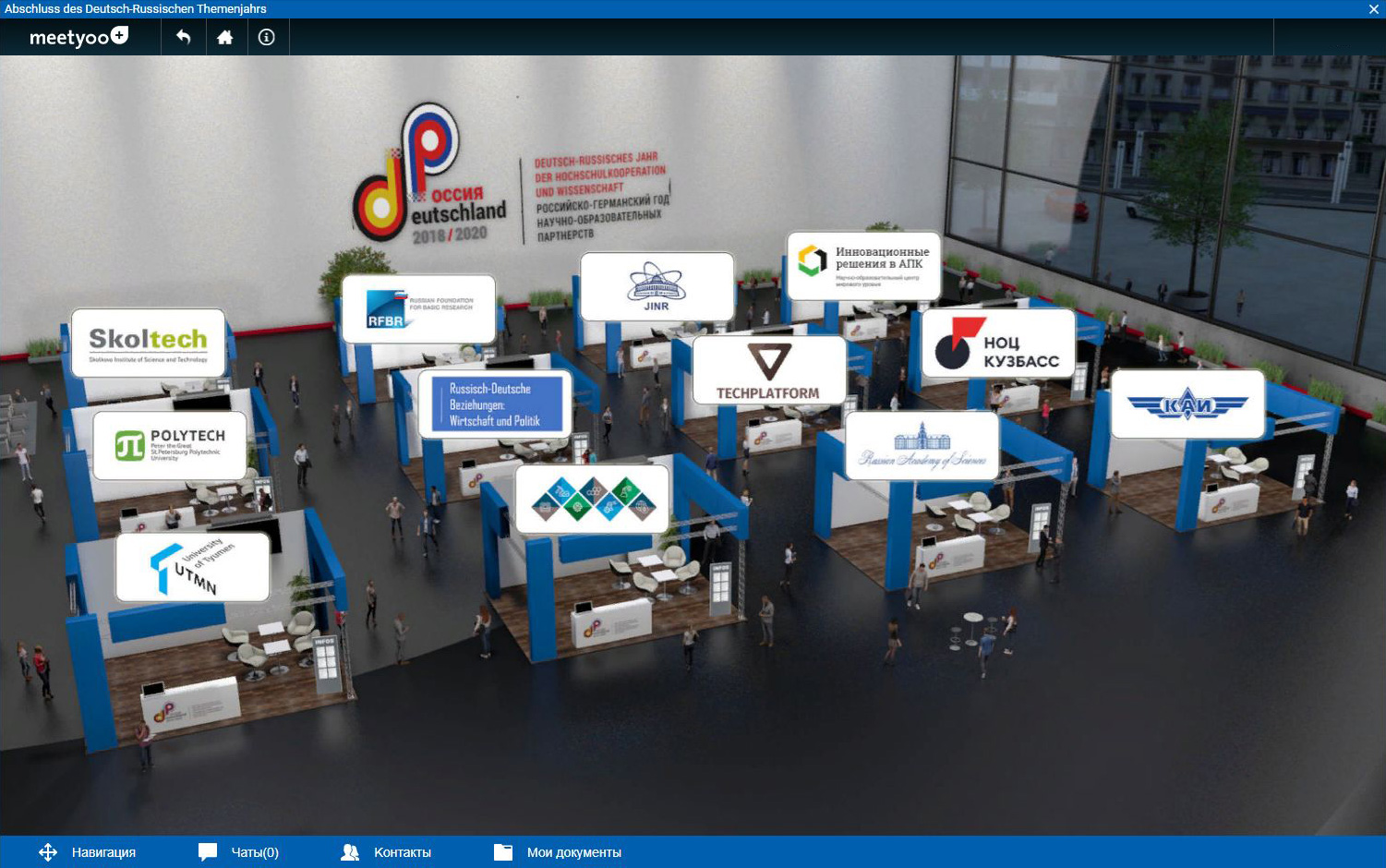JINR took part in summing up of results of Russian-German Year 2018-2020
News, 15 September 2020
On 15 September 2020, the Russian-German Year of Cooperation in Science and Education 2018-2020 was concluded. The event with the participation of G. V. Trubnikov, JINR First Vice-Director, was held in a hybrid format. JINR became an exhibitor at a virtual exhibition held in the frames of the Year’s closing ceremony.
The key element of the Closing Ceremony of the Year declared by the Ministries of Foreign Affairs of the Russian Federation and the Federal Republic of Germany was the conference “Russian-German dialogue in education and science: creating future together”. In the conditions of the pandemic of the new coronavirus infection, coordinators of the Year decided to develop a special format and a site to hold this event in the “hybrid format”: participants of panel discussions gathered in studios of Moscow and Berlin, discussions were integrated on a specially created virtual platform visitors of which had an impression of full presence, i.e. they could see and hear the discussions, ask questions, and leave comments.
G. V. Trubnikov took part in the plenary discussion session “Dialogue in science and education: prospects for the Russian-German cooperation” and noted the following: “The very concept of joint work has already changed. All of us have gone beyond our comfort zone. The pandemic has led to a rapid transition to a new model and paradigm of international scientific and educational dialogue. The programme of this Сross Year can also be a kind of litmus test: we started 2020 with a large-scale Russian-German Forum of University Science and conclude the Year with a hybrid virtual event.”
The discussion was held with the participation of high officials of German scientific and educational community (President of the German Academic Exchange Service J. Mukherjee, President of the Goethe-University Frankfurt/Main B. Wolff, Vice-President of the Helmholtz Association of German Research Centres H. Dosch, President of the Technische Universität Berlin Ch. Thomsen, as well as Russian colleagues (Vice-President of the Russian Academy of Sciences Yu. Yu. Balega, Chairman of the Council of the Russian Foundation for Basic Research V. Ya. Panchenko, and NUST MISIS Acting Rector S. V. Salikhov). JINR First Vice-Director highlighted that “in new conditions, we should get used to the fact that cooperation on new projects will be established remotely due to new conditions. And this will definitely require the support of new formats by the scientific policy that should become more flexible in the interests of mutually beneficial scientific dialogue. The Joint Institute for Nuclear Research in Dubna has been a platform for joint work of leading international scientists at the cutting edge of science since its establishment. It is also a magnet for young researchers and students from all over the world. During the pandemic, we have also made an experiment and created a tool to continue knowledge and experience exchange with talented students and postgraduates despite geographical borders. That was how a unique programme INTErnational REmote Student Training (INTEREST) was launched.” Grigory Trubnikov seized the opportunity to invite young researchers who took part in the Ceremony to join this programme.
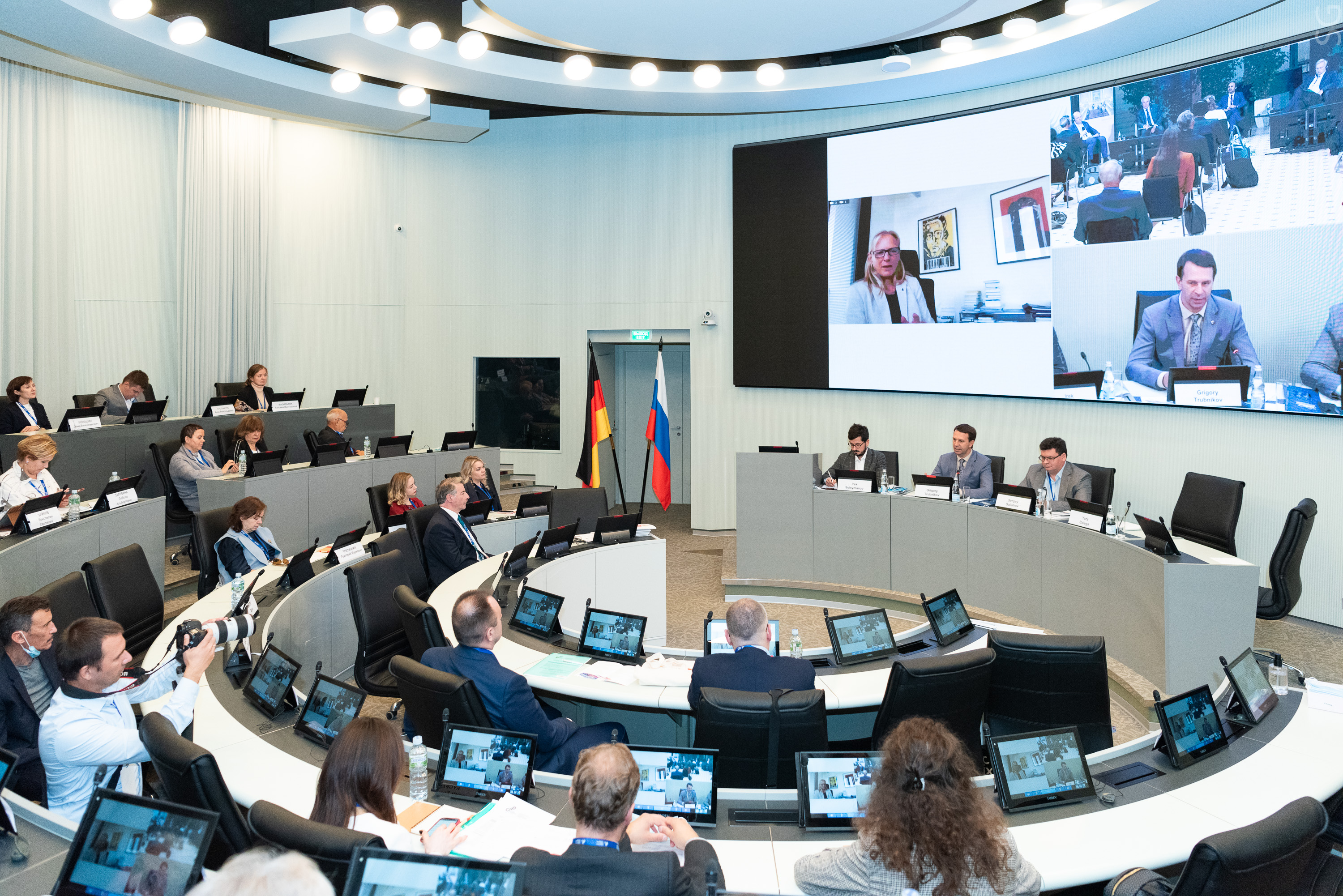 Photos by the NUST MISIS Press Service
Photos by the NUST MISIS Press Service
Participants discussed the issue of the necessity for political support of further development of the Russian-German scientific and educational dialogue. Grigory Trubnikov noted: “Political support is necessary, of course. The political message that science, education, culture should remain standing bridges for bilateral interaction in any conditions is important for representatives of scientific and educational communities.”
Grigory Trubnikov highlighted: “This year, the Joint Institute for Nuclear Research (JINR) and the Helmholtz Centre for Heavy Ion Research (GSI) signed the Cooperation Agreement on the NICA project due to which German partners will contribute to equipping and operation of the Complex of Superconducting Rings for Heavy Ion Colliding Beams “NICA”. The scope of the scientific and technical cooperation and its diversity are enormous. In this regard, it is significant to preserve diverse projects: from student mobility to joint mega-projects. At the same time, I am sure that support of the youth is the most efficient long-term investment to successful future of the Russian-German dialogue not only in the scientific sector,” the JINR representative concluded.
As long-term fields for the Russian-German cooperation, Grigory Trubnikov highlighted joint research of the ocean, the near-Earth environment, and the creation of relevant joint research infrastructure.
In the frames of the Ceremony, a virtual exhibition of leading scientific and educational organizations and funds from Russia and Germany was held. Participants of the exhibition could visit virtual stands and communicate with their representatives in real-time on a specially prepared virtual platform. JINR was one of the pioneers of a new format for the organization of international exhibition space and successfully presented a wide range of tool for the development of scientific and educational cooperation, from the international programme for students “INTErnational REmote Student Training” to cooperation in the frames of the NICA mega-project.
The winners of the competition “Russia and Germany: scientific and educational bridges” were awarded at the Closing Ceremony of the Year. The project “The TAIGA Observatory – Russia and Germany open a new window to the Universe” was recognized as one of the winners of the competition in the category “Advanced Research” for successful long-term scientific cooperation. JINR actively participates in the TAIGA international experiment, which is one of the priority projects of JINR in the fields of astrophysical research.
Following information of the JINR Directorate

